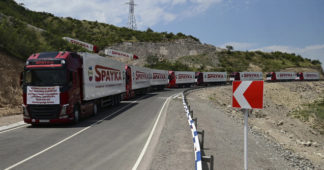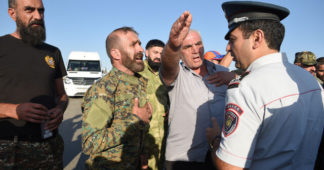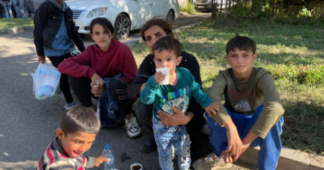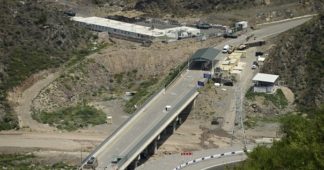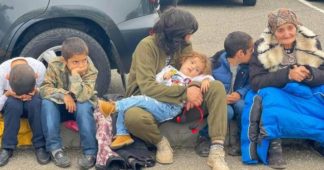By Dec 29, 2023
Terrible wars all over the world, from Ukraine to the Middle East, should not obscure one of the most shocking events to take place in 2023: the mass exodus of Armenians from Nagorno-Karabakh, over the span of a few days. It was one of the largest and most sudden ethnic cleansings in recent history.
That crime had a perpetrator: the despotic regime of President Ilham Aliyev in Azerbaijan. That perpetrator should have to answer for these crimes—even if it is a petrostate that has some value to the West as a supplier of oil and natural gas.
The facts are not really in dispute. More than 100,000 indigenous ethnic Armenians fled the enclave of Nagorno-Karabakh in the days after a lightning military attack by Azerbaijan on Sept. 19. That attack came in the 10th month of a blockade imposed by Azerbaijan on the enclave, with Azerbaijani troops and operatives blocking the Lachin Corridor, which links Nagorno-Karabakh to the outside world. On June 15, Azerbaijan completely sealed off the region, even barring the Red Cross—violating a desist order from the International Court of Justice in February.
Deaths by starvation began, and respected international jurists like Luis Moreno Ocampo, the first prosecutor of the International Criminal Court , began declared the situation a genocide. Aditionally, former United Nations expert on genocide Juan Mendez warned of serious risks of genocide facing the population.
The conflict in Nagorno-Karabakh, known to Armenians as Artsakh, is complex. The area was the heartland of old Armenian empires, but was gifted by the Soviets to the Azerbaijani Socialist Republic. When Azerbaijan and Armenia both became independent after the Soviet collapse, a war left the enclave as a self-governing entity with a land link to Armenia. Azerbaijan attacked in 2020 to regain much of the land. In 2023 it managed to empty what was left of the indigenous Armenians.
Aliyev’s apologists will argue that they bear no culpability because those who fled did so of their own volition—magically deciding as one to leave behind properties and jobs and an entire beloved homeland. They will claim innocence because those fleeing were not ordered to leave or herded onto trucks or prodded in the back by bayonets or guns.
But real cases of international criminal tribunals tell us that no such orders, trucks, or weapons are needed for an exodus to qualify as forced and amount to a crime. Take, for instance, the case of Vojislav Šešelj, leader of the far-right ultranationalist Serbian Radical Party in Belgrade, who was first acquitted and then convicted on appeal of crimes against humanity in the Yugoslav wars. The fundamental factor that eventually secured Šešelj’s (partial) conviction, in 2018, was his role in incitement to violence and hate speech.
Continue reading at www.newsweek.com
We remind our readers that publication of articles on our site does not mean that we agree with what is written. Our policy is to publish anything which we consider of interest, so as to assist our readers in forming their opinions. Sometimes we even publish articles with which we totally disagree, since we believe it is important for our readers to be informed on as wide a spectrum of views as possible.

